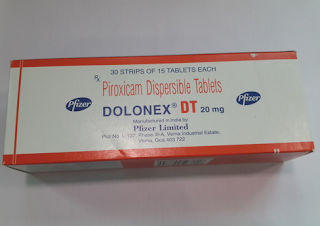What is Cushing syndrome
Overview
Cushing's syndrome happens when your body is presented to abnormal amounts of the hormone cortisol for quite a while. Cushing syndrome, some of the time called hypercortisolism, might be caused by the utilization of oral corticosteroid pharmaceutical. The condition can likewise happen when your body makes excessively cortisol all alone.
An excessive amount of cortisol can create a portion of the trademark indications of Cushing syndrome — a greasy mound between your shoulders, an adjusted face, and pink or purple extend blemishes on your skin. Cushing syndrome can likewise bring about hypertension, bone misfortune and, once in a while, type 2 diabetes.
Medications for Cushing syndrome can restore your body's cortisol creation to typical and discernibly enhance your side effects. The prior treatment starts, the better your odds for recuperation.
Indications
The signs and indications of Cushing syndrome can shift contingent upon the levels of overabundance cortisol.
Regular signs and indications include dynamic corpulence and skin changes, for example,
Weight pick up and greasy tissue stores, especially around the midriff and upper back, in the face (moon confront), and between the shoulders (wild ox bump)
Pink or purple extend marks (striae) on the skin of the mid-region, thighs, bosoms and arms
Diminishing, delicate skin that wounds effortlessly
Moderate mending of cuts, creepy crawly chomps and diseases
Skin inflammation
Ladies with Cushing syndrome may involvement:
Thicker or more noticeable body and facial hair (hirsutism)
Sporadic or truant menstrual periods
Men with Cushing syndrome may understanding:
Diminished moxie
Diminished ripeness
Erectile brokenness
Different signs and side effects include:
Extreme weariness
Muscle shortcoming
Sorrow, uneasiness and crabbiness
Loss of passionate control
Psychological challenges
New or declined hypertension
Cerebral pain
Bone misfortune, prompting cracks after some time
In kids, disabled development
At the point when to see a specialist
Contact your specialist on the off chance that you have manifestations that propose Cushing syndrome, particularly in case you're taking corticosteroid solution to treat a condition, for example, asthma, joint inflammation or incendiary gut sickness.
Causes
Endocrine system
Endocrine system
Excess levels of the hormone cortisol are responsible for Cushing syndrome. Cortisol, which is produced in the adrenal glands, plays a variety of roles in your body. For example, cortisol helps regulate your blood pressure and keeps your cardiovascular system functioning normally.
Cortisol also helps your body respond to stress and regulates the way you convert (metabolize) proteins, carbohydrates and fats in your diet into usable energy. However, when the level of cortisol is too high in your body, you may develop Cushing syndrome.
The role of corticosteroid medications
Cushing syndrome can develop from a cause outside of your body (exogenous Cushing syndrome). One example is taking oral corticosteroid medications in high doses over an extended period of time. These medications, such as prednisone, have the same effect in the body as does cortisol produced by your body.
Oral corticosteroids may be necessary to treat inflammatory diseases, such as rheumatoid arthritis, lupus and asthma, or to prevent your body from rejecting a transplanted organ. Because the doses required to treat these conditions are often higher than the amount of cortisol your body normally needs each day, side effects from excess cortisol can occur.
It's also possible to develop Cushing syndrome from injectable corticosteroids — for example, repeated injections for joint pain, bursitis and back pain. Inhaled steroid medicines (taken for asthma) and steroid skin creams (used for skin disorders such as eczema) are generally less likely to cause Cushing syndrome than oral corticosteroids. But, in some individuals, these medications may cause Cushing syndrome, especially if taken in high doses.
Your body's own overproduction
The condition may also be due to your body's own overproduction of cortisol (endogenous Cushing syndrome). This may occur from excess production by one or both adrenal glands, or overproduction of the adrenocorticotropic hormone (ACTH), which normally regulates cortisol production, In these cases, Cushing syndrome may be related to:
A pituitary gland tumor (pituitary adenoma). A noncancerous (benign) tumor of the pituitary gland, located at the base of the brain, secretes an excess amount of ACTH, which in turn stimulates the adrenal glands to make more cortisol. When this form of the syndrome develops, it's called Cushing disease. It occurs much more often in women and is the most common form of endogenous Cushing syndrome.
An ectopic ACTH-secreting tumor. Rarely, when a tumor develops in an organ that normally does not produce ACTH, the tumor will begin to secrete this hormone in excess, resulting in Cushing syndrome. These tumors, which can be noncancerous (benign) or cancerous (malignant), are usually found in the lungs, pancreas, thyroid or thymus gland.
A primary adrenal gland disease. In some people, the cause of Cushing syndrome is excess cortisol secretion that doesn't depend on stimulation from ACTH and is associated with disorders of the adrenal glands. The most common of these disorders is a noncancerous tumor of the adrenal cortex, called an adrenal adenoma.
Cancerous tumors of the adrenal cortex (adrenocortical carcinomas) are rare, but they can cause Cushing syndrome as well. Occasionally, benign, nodular enlargement of both adrenal glands can result in Cushing syndrome.
Familial Cushing syndrome. Rarely, people inherit a tendency to develop tumors on one or more of their endocrine glands, affecting cortisol levels and causing Cushing syndrome.
Complications
Without treatment, complications of Cushing syndrome may include:
Bone loss (osteoporosis), which can result in unusual bone fractures, such as rib fractures and fractures of the bones in the feet
High blood pressure (hypertension)
Type 2 diabetes
Frequent or unusual infections
Loss of muscle mass and strength
Cushing's syndrome happens when your body is presented to abnormal amounts of the hormone cortisol for quite a while. Cushing syndrome, some of the time called hypercortisolism, might be caused by the utilization of oral corticosteroid pharmaceutical. The condition can likewise happen when your body makes excessively cortisol all alone.
An excessive amount of cortisol can create a portion of the trademark indications of Cushing syndrome — a greasy mound between your shoulders, an adjusted face, and pink or purple extend blemishes on your skin. Cushing syndrome can likewise bring about hypertension, bone misfortune and, once in a while, type 2 diabetes.
Medications for Cushing syndrome can restore your body's cortisol creation to typical and discernibly enhance your side effects. The prior treatment starts, the better your odds for recuperation.
Indications
The signs and indications of Cushing syndrome can shift contingent upon the levels of overabundance cortisol.
Regular signs and indications include dynamic corpulence and skin changes, for example,
Weight pick up and greasy tissue stores, especially around the midriff and upper back, in the face (moon confront), and between the shoulders (wild ox bump)
Pink or purple extend marks (striae) on the skin of the mid-region, thighs, bosoms and arms
Diminishing, delicate skin that wounds effortlessly
Moderate mending of cuts, creepy crawly chomps and diseases
Skin inflammation
Ladies with Cushing syndrome may involvement:
Thicker or more noticeable body and facial hair (hirsutism)
Sporadic or truant menstrual periods
Men with Cushing syndrome may understanding:
Diminished moxie
Diminished ripeness
Erectile brokenness
Different signs and side effects include:
Extreme weariness
Muscle shortcoming
Sorrow, uneasiness and crabbiness
Loss of passionate control
Psychological challenges
New or declined hypertension
Cerebral pain
Bone misfortune, prompting cracks after some time
In kids, disabled development
At the point when to see a specialist
Contact your specialist on the off chance that you have manifestations that propose Cushing syndrome, particularly in case you're taking corticosteroid solution to treat a condition, for example, asthma, joint inflammation or incendiary gut sickness.
Causes
Endocrine system
Endocrine system
Excess levels of the hormone cortisol are responsible for Cushing syndrome. Cortisol, which is produced in the adrenal glands, plays a variety of roles in your body. For example, cortisol helps regulate your blood pressure and keeps your cardiovascular system functioning normally.
Cortisol also helps your body respond to stress and regulates the way you convert (metabolize) proteins, carbohydrates and fats in your diet into usable energy. However, when the level of cortisol is too high in your body, you may develop Cushing syndrome.
The role of corticosteroid medications
Cushing syndrome can develop from a cause outside of your body (exogenous Cushing syndrome). One example is taking oral corticosteroid medications in high doses over an extended period of time. These medications, such as prednisone, have the same effect in the body as does cortisol produced by your body.
Oral corticosteroids may be necessary to treat inflammatory diseases, such as rheumatoid arthritis, lupus and asthma, or to prevent your body from rejecting a transplanted organ. Because the doses required to treat these conditions are often higher than the amount of cortisol your body normally needs each day, side effects from excess cortisol can occur.
It's also possible to develop Cushing syndrome from injectable corticosteroids — for example, repeated injections for joint pain, bursitis and back pain. Inhaled steroid medicines (taken for asthma) and steroid skin creams (used for skin disorders such as eczema) are generally less likely to cause Cushing syndrome than oral corticosteroids. But, in some individuals, these medications may cause Cushing syndrome, especially if taken in high doses.
Your body's own overproduction
The condition may also be due to your body's own overproduction of cortisol (endogenous Cushing syndrome). This may occur from excess production by one or both adrenal glands, or overproduction of the adrenocorticotropic hormone (ACTH), which normally regulates cortisol production, In these cases, Cushing syndrome may be related to:
A pituitary gland tumor (pituitary adenoma). A noncancerous (benign) tumor of the pituitary gland, located at the base of the brain, secretes an excess amount of ACTH, which in turn stimulates the adrenal glands to make more cortisol. When this form of the syndrome develops, it's called Cushing disease. It occurs much more often in women and is the most common form of endogenous Cushing syndrome.
An ectopic ACTH-secreting tumor. Rarely, when a tumor develops in an organ that normally does not produce ACTH, the tumor will begin to secrete this hormone in excess, resulting in Cushing syndrome. These tumors, which can be noncancerous (benign) or cancerous (malignant), are usually found in the lungs, pancreas, thyroid or thymus gland.
A primary adrenal gland disease. In some people, the cause of Cushing syndrome is excess cortisol secretion that doesn't depend on stimulation from ACTH and is associated with disorders of the adrenal glands. The most common of these disorders is a noncancerous tumor of the adrenal cortex, called an adrenal adenoma.
Cancerous tumors of the adrenal cortex (adrenocortical carcinomas) are rare, but they can cause Cushing syndrome as well. Occasionally, benign, nodular enlargement of both adrenal glands can result in Cushing syndrome.
Familial Cushing syndrome. Rarely, people inherit a tendency to develop tumors on one or more of their endocrine glands, affecting cortisol levels and causing Cushing syndrome.
Complications
Without treatment, complications of Cushing syndrome may include:
Bone loss (osteoporosis), which can result in unusual bone fractures, such as rib fractures and fractures of the bones in the feet
High blood pressure (hypertension)
Type 2 diabetes
Frequent or unusual infections
Loss of muscle mass and strength




Comments
Post a Comment